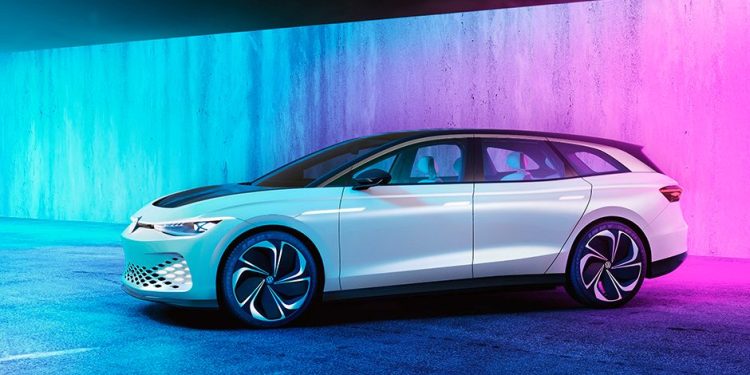Volkswagen doubles down on electric cars, announces slick sedan
As preparations for widespread vehicle electrification roll-out in Europe and the UK continue, Volkswagen has announced plans to invest even more in the emerging technologies — although stopping short of declaring a fully fledged internal combustion engine cut-off point.
Late last week the German car-maker unveiled its new ‘Accelerate’ strategy, designed around ramping up electric car outputs and shifting its internal goal-posts in a bid to become “the most attractive brand for sustainable mobility” according to boss Ralf Brandstätter.
Headlining this are plans to double the amount of electric cars it had expected itself to be selling in Europe by 2030. The firm had previously said 35 per cent of its sales by 2030 would be electric, but now that expectation sits at 70 per cent.
The percentages are slightly more realistic for the US and China, which Volkswagen has earmarked as markets with a 50 per cent fully electric and 50 per cent internal combustion and hybrid by 2030.
The firm’s plans to launch at least one new electric car every year will help it hit these targets. With the ID.3 and ID.4 already on the market, it’s set to launch the Chinese-market exclusive ID.6 X next year, then the ID.5, ID.Buzz minivan, and Aero B station wagon in 2025 — with other announcements likely to be sprinkled throughout that list.

Brandstätter has conceded that some models will continue into and past 2030 with internal combustion options, most notably in the Golf and Tiguan. On the flipside, though, Volkswagen has unveiled plans to produce a new premium sedan in 2026.
The plans, which come with an attached silhouette teaser that looks very Tesla Model S in proportions, have been given the internal label ‘Project Trinity’. The name stems somewhat from Volkswagen’s newly developed Project Trinity architecture, which is designed from the ground up for EVs.
Short of being ‘just another electric car’, the new sedan is set to represent a new flagship for Volkswagen; marrying electrification to autonomous driving capabilities and a new business model allowing for downloadable functions and services. Volkswagen has also said that the car will represent a new benchmark for recharging speeds.
On the note of autonomy, Brandstätter says that Project Trinity is set to offer ‘Level 2+’ autonomy from new, with Level 4 autonomy (full hands-off autonomous driving on selected roads) slated to be available from 2030.

Volkswagen also confirmed that it’s committed to building a ‘people’s car’ low-cost electric option to slide underneath the ID.3 in the future. It will utilise the brand’s current MEB architecture, be priced from around £17,000 (around $32,000), and will land around 2025. It’s been speculated that the model might be sold under the ID.1 and/or ID.2 nameplate.
“The automotive industry is changing fast,” said Brandstätter. “We will fundamentally change Volkswagen in the coming years. We intend to defend our market leadership on a clear position: Volkswagen will be the most attractive brand for sustainable mobility.
“If you believe with electric cars alone we’ve arrived in the future, already you’re wrong. The key is digitalisation. The car is now a software-driven product, like an internet device. Cars will become more intelligent and safer. Electrification was just the beginning, the real disruption is coming.”





